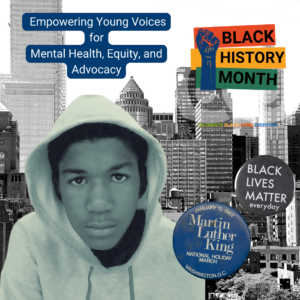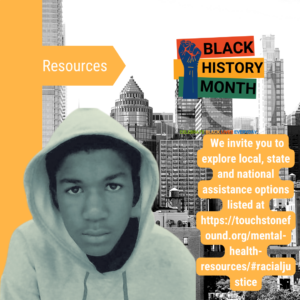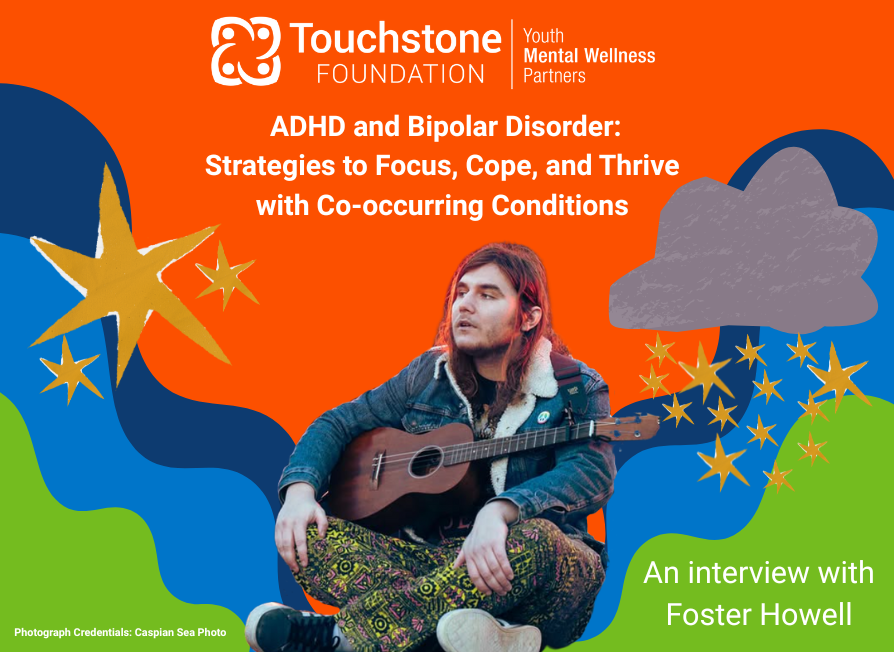
Celebrating Black History Month: Empowering Young Voices for Mental Health, Equity, and Advocacy
At Touchstone Foundation, we recognize the importance of understanding history and promoting well-being, particularly for young people facing challenges related to equity and inclusion. This month, we reflect on key moments that have shaped conversations around social awareness and the growing need for mental health support.
Understanding the Movement
In 2013 in response to the national outcry following the death of Trayvon Martin, Alicia Garza, Patrisse Cullors, and Opal Tometi founded the #BlackLivesMatter initiative. The online movement aimed to raise awareness about issues affecting Black communities and sparked broader discussions about inclusion, equity, and social well-being.
Trayvon Martin, a 17-year-old member of his community at the time, became a symbol of the vulnerabilities youth can face and the importance of advocating for their protection and well-being.
The conversation gained further national attention in 2014 after the tragic shooting of 18-year-old Mike Brown. Demonstrations and organized efforts followed, encouraging dialogue about ending state-sanctioned violence against Black people. These events inspired the creation of groups dedicated to fostering awareness and constructive dialogue.
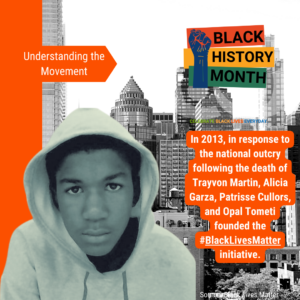
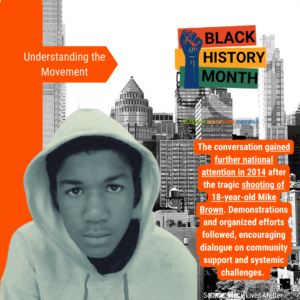
The Role of Youth
Trayvon Martin’s story underscores the emotional toll that injustice and violence can have on young people. His passing not only ignited a movement but highlighted the need to prioritize mental health for youth navigating complex social realities.
The Anxiety and Depression Association of America emphasizes the need to redefine and unlearn harmful narratives surrounding mental health within these communities. Research shows that BIPOC youth are disproportionately affected by systemic inequities, contributing to mental health struggles such as racial trauma, discrimination, and socioeconomic barriers.
Youth advocates often bear the weight of these societal challenges. As they drive change, it becomes essential to provide safe spaces for healing, community support, and culturally competent care. Programs like mentorship networks, peer support groups, and trauma-informed counseling are vital in sustaining the resilience and energy of young leaders. By normalizing mental health conversations and equipping youth with coping strategies, we empower them to continue their advocacy while safeguarding their emotional and psychological well-being.
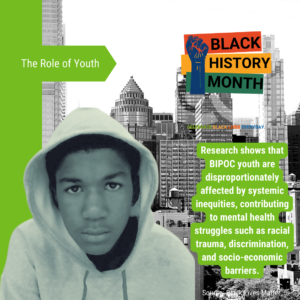
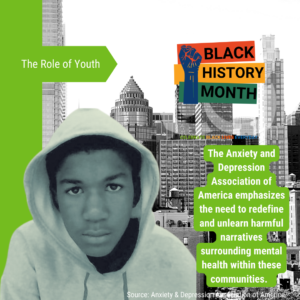
Resources for Youth Advocates and Those Facing Injustice
For young individuals affected by systemic challenges or actively advocating for change, access to mental health and support resources is crucial. We invite you to explore local, state and national assistance options listed on our Mental Health Resources Page.
Moving Forward Together
Understanding history and fostering well-being are inseparable. As we honor Black History Month, we reaffirm our commitment to ensuring young people in Lancaster County have the resources they need to thrive.
By promoting open conversations about mental health, equity, and inclusion, we contribute to building a community where all young individuals feel heard, supported, and empowered. Together, we can create a future that values both historical awareness and mental well-being.
